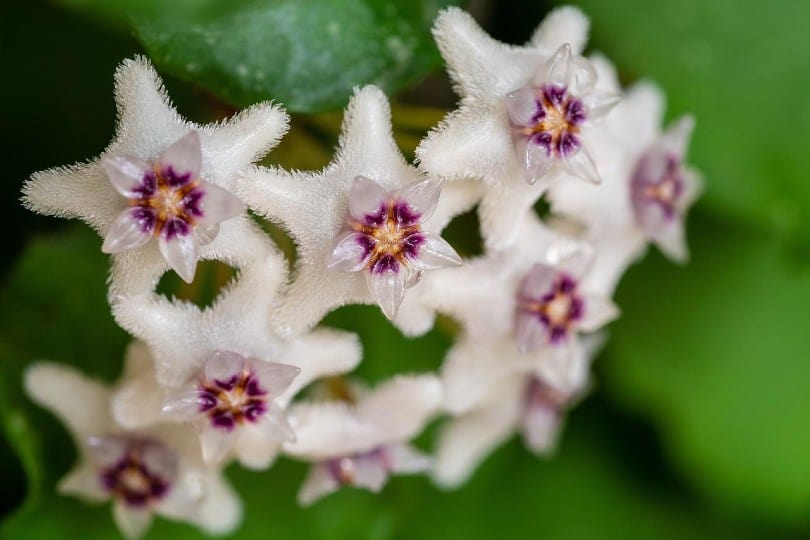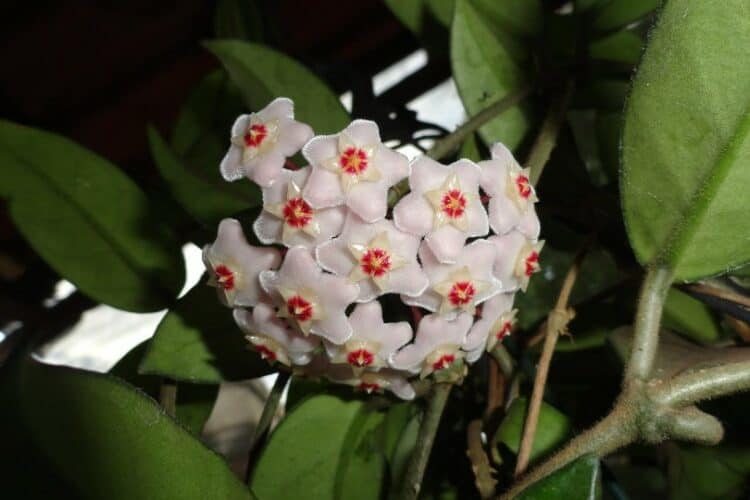The Hoya plant, or “wax plant,” is commonly found at most gardening centers and is part of the Apocynaceae family. It is easy to care for and produces blooms annually, and as a result, it is a popular choice for a house plant. The Hoya has thick, smooth leaves that grow along a vine and produces a star-shaped flower, most commonly in the spring.
Pet owners should know more about the plants they keep in the house since some are toxic to cats and dogs. If you are planning on keeping Hoya plants in your home, you can rest assured that the species is not harmful to felines.
Like most plants consumed in excess, Hoyas can still make a cat sick. A cat’s digestive system is not made to process plants, but it would typically require a large quantity to upset your cat’s stomach. While Hoya plants are not toxic, the fertilizer you use could be harmful to your pet.
If you discover that the plant food is toxic or harmful to your animal, do your best to keep it away from your cat until the fertilizer is absorbed. It is possible to grow a Hoya plant in your home in a pot or basket without the feat of your cat ingesting the plant and getting sick. However, remember that even non-toxic plants can cause vomiting when eaten in large amounts.
How To Prevent Your Cat From Eating Your Houseplants
While you may think you can monitor what your pet eats, most felines are tempted to explore their environment when their owners are not around. Houseplants can be tempting for your cat to eat when you’re away, but there are a few ways you can prevent this:
- Cat grass: Cats often eat grass to aid their digestion, and instead of your houseplants taking a beating, you can purchase cat grass at your local pet store.
- Chili powder: Lightly dusting chili powder on the leaves of your plant may cause your cat to avoid the plant altogether. Although most cats will avoid chili powder, you should stop using it on your plant if you notice your pet eating it. Hot peppers and chili powder can irritate the cat’s stomach.
- Aluminum foil: Placing aluminum foil around the bottom of your plant will deter your cat since they hate feeling it on the bottom of their feet.
- Citrus: Cats detest the smell of citrus (lemons, oranges) and will avoid plants treated with a citrus spray.
- Vinegar and water: Spraying your plants with vinegar and water will also deter your cat from eating the leaves.

Conclusion
While Hoya plants are not toxic, there are several reasons why you should prevent your pet from eating them. With the previous tips, you should be able to keep your cat away from your houseplants. If you notice any extreme vomiting or lethargy, contact your vet immediately.
Featured Image Credit: Pixabay
















